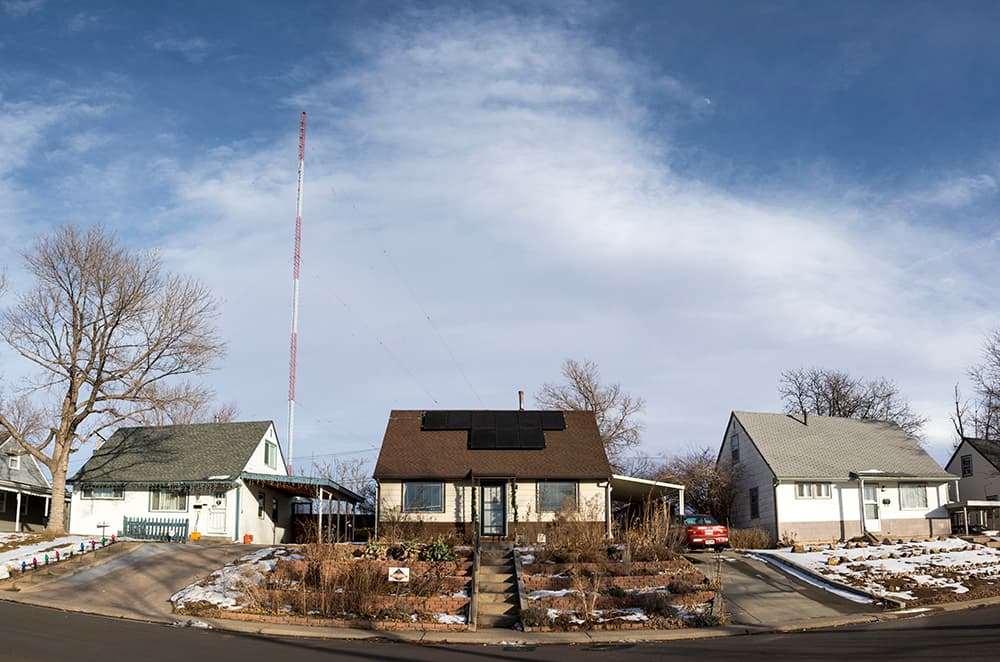Earth Day isn't a holiday known for gift-giving, but Denver thinks this year should be a little different.
On April 22, the city plans to launch a rebate program to help residents purchase all sorts of products -- e-bikes, solar panels, cold-climate heat pumps -- meant to help them ditch fossil fuels. Johnathan Rogers, a renewable energy specialist with the City and County of Denver, said the incentives will be available to anyone who lives in Denver, but the program will be initially focused on home-energy upgrades.
"I would encourage people who are thinking about that furnace replacement or air conditioner replacement to take advantage of our program early, because these high incentive levels, they might not last forever," Rogers said.
Here's the full suite of incentives available later this month. Taken together, Rogers said they're designed to offset the cost to "electrify" a home by 80%.
- $9,000 for an air-source or ground-source heat pump. Think of heat pumps as all-in-one heating and cooling units. The devices can warm a home in the winter and cool it in the summer. As an additional benefit, they use far less energy than traditional electric furnaces, which is why many climate scientists think they're critical to powering the world with renewable electricity and cutting greenhouse gas emissions.
The biggest drawback is the price. Rogers said a heat pump installation can easily cost well over $10,000, making it prohibitive for most Denver families.
- $3,200 for a smart heat pump water heater. Heat pumps aren't just able to warm up and indoor spaces. They can also replace natural gas water heaters. The Denver program would provide the largest incentives for smart heat pump water heaters, which can be controlled from afar to help manage energy demand and protect the power grid. Residents could receive $1,400 off a water heater without an internet connection.
- Up to $4,000 for home solar. The incentive will only be available when residents install heat pumps, which can significantly increase the amount of electricity required to power a home.
- $2,750 for a battery storage system. The incentive will only be available to residents installing heat pump systems at the same time.
- $2,000 for an electric service panel upgrade. Additional electrical appliances can easily overwhelm old service panels. To make the project more feasible, the city would kick in an extra $2,000 to upgrade a service panel capable of handling the extra energy load.
- $1,000 to install wiring for an electric vehicle charger. Most faster electric vehicle chargers require a plug designed to handle more power than a traditional outlet. The city incentive would come in addition to a $5,00 rebate from Xcel Energy.
- $400 for an e-bike. Recent research from the National Renewable Energy Laboratory found that low-income workers who receive an e-bike ended up using it for 30% of their daily trips. The rebate aims to give many more people the same opportunity. All Denverites are eligible for the $400 incentive, but income-qualifying residents could get a $1,200 discount. An additional $500 is available for anyone buying a cargo e-bike.
Rogers said full details on the e-bike and home energy rebates will soon be posted on the city website. He noted they will be offered as upfront discounts at the time of purchase, so Denver residents won't need to fill out any forms and wait for money after the fact.
Funding for the program comes from a .25% sales tax Denver voters approved in 2020, which provides about $40 million a year to the city's Climate Protection Fund. Rogers said the city plans to draw $3 million from the fund each year to finance the new rebate program.
One stated goal of the new sales tax was to advance environmental equity across the city. While the rebates are open to all Denverites regardless of income, Rogers said higher-value incentives will be available to non-profits like the Energy Resource Center, which already completes energy efficiency projects for low-income families.
Those additional resources could allow many families to electrify their homes for free, Rogers said.
The initial investment is meant to drive a market for electric heat pumps and contractors willing to install them. Rogers said the rebates could be adjusted over time, depending on whether they're working to help people avoid installing natural gas furnaces and water heaters.
"Every single one of us needs to participate in the energy transition, and we need multiple tools and programs to do that," Rogers said.












